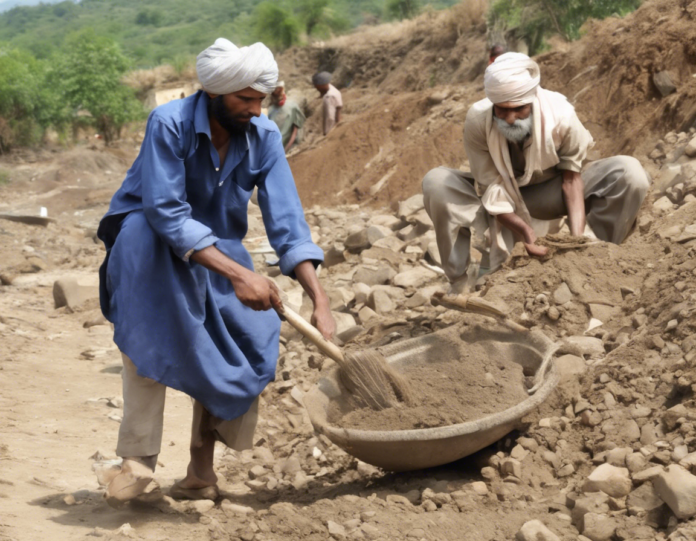Introduction
In a developing country like India, where poverty and unemployment are persistent challenges, the government has initiated various schemes and programs to alleviate these issues. One such program is the Mahatma Gandhi National Rural Employment Guarantee Act (MGNREGA), which has been pivotal in providing employment opportunities to millions of rural households. In this article, we will delve into what MGNREGA is, its objectives, implementation, impact, and the frequently asked questions surrounding this significant socio-economic initiative.
What is MGNREGA?
MGNREGA stands for the Mahatma Gandhi National Rural Employment Guarantee Act, which was enacted by the Indian Parliament in 2005 with the primary aim of enhancing the livelihood security of people in rural areas by guaranteeing at least 100 days of wage employment in a financial year to every household whose adult members volunteer to do unskilled manual work.
Objectives of MGNREGA
The key objectives of MGNREGA are as follows:
-
Ensuring livelihood security: By providing a minimum of 100 days of wage employment in rural areas, MGNREGA aims to enhance the livelihood security of rural households.
-
Creating durable assets: The program focuses on creating productive and durable assets such as water conservation structures, rural infrastructure, and agricultural assets that benefit the community in the long run.
-
Strengthening rural economy: By boosting rural purchasing power through wage employment, MGNREGA contributes to the overall development of the rural economy.
-
Empowering women: MGNREGA prioritizes women’s participation and ensures equal wages for men and women, thereby promoting gender equality and empowerment.
Implementation of MGNREGA
The successful implementation of MGNREGA involves several key stakeholders and processes, including:
-
Registration: Rural households can register for MGNREGA work at the local Gram Panchayat or online through the official portal.
-
Job Cards: Upon registration, eligible households receive job cards that entitle them to apply for work and receive wages under the program.
-
Work Allocation: The Gram Panchayat is responsible for allocating work to registered households based on the demand for labor and the projects available.
-
Payment of Wages: Wages under MGNREGA are to be paid within 15 days of the completion of work directly to the worker’s bank account or in cash.
-
Social Audits: Regular social audits are conducted to ensure transparency, accountability, and the quality of assets created under MGNREGA.
Impact of MGNREGA
Over the years, MGNREGA has had a significant impact on rural India, including:
-
Poverty Alleviation: By providing employment and income support, MGNREGA has helped reduce poverty and improve the standard of living in rural areas.
-
Asset Creation: The program has led to the creation of valuable community assets such as roads, ponds, wells, and check dams, which benefit the entire village.
-
Women Empowerment: MGNREGA has been instrumental in empowering women through increased participation in the workforce and equal wages.
-
Sustainable Development: By focusing on natural resource management and sustainable livelihoods, MGNREGA contributes to the overall development of rural communities.
Frequently Asked Questions (FAQs)
-
How is MGNREGA funded?
MGNREGA is funded through budgetary allocations by the central government, and the funds are transferred to state governments for implementation. -
Is there a minimum educational qualification required to participate in MGNREGA?
No, MGNREGA mandates that work should be provided to individuals willing to do unskilled manual labor, regardless of their educational qualifications. -
Are there any age restrictions for availing MGNREGA benefits?
MGNREGA primarily focuses on providing employment opportunities to adult members of rural households, and there are no specific age restrictions as long as the individual is willing to work. -
Can migrants avail the benefits of MGNREGA?
Yes, migrants who have job cards and are willing to work can avail the benefits of MGNREGA in the rural areas where they are currently residing. -
How does MGNREGA ensure transparency in wage payments?
MGNREGA mandates the use of bank or post office payments for wage disbursement, along with regular social audits to prevent any instances of corruption or delays in payments.
Conclusion
In conclusion, MGNREGA has emerged as a landmark social security and employment generation program in India, playing a crucial role in enhancing the livelihoods of rural households and promoting inclusive growth. By guaranteeing wage employment and focusing on asset creation and sustainable development, MGNREGA continues to make a significant impact on poverty alleviation, women empowerment, and rural economy strengthening. Through efficient implementation, transparency, and community participation, MGNREGA stands as a shining example of a successful socio-economic initiative aimed at uplifting the marginalized sections of society.


